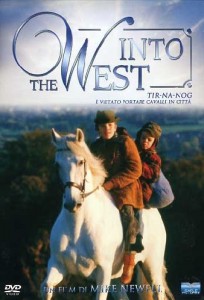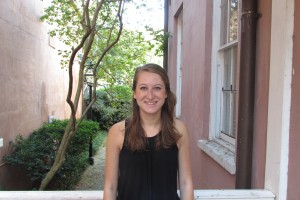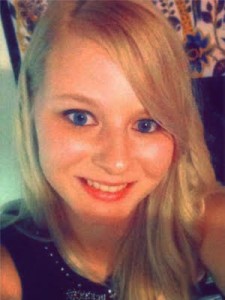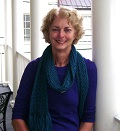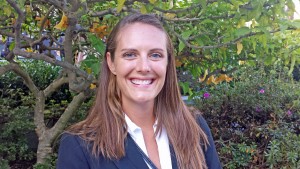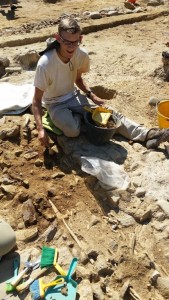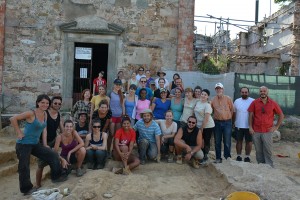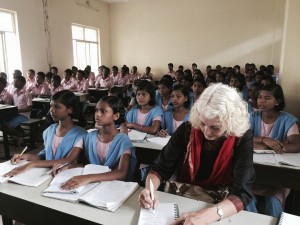What have you been doing since you graduated?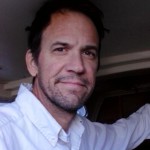
Since graduating from the CofC in December of 1991, I have mainly pursued an academic career in anthropology and, more recently, geography. After graduation I worked at the Avery Research Center for African American History and Culture, the Kennedy Center for Performing Arts in Washington D.C., for various archaeology CRM firms, as a teaching assistant in anthropology, sociology, and environmental studies at the University of California, Santa Barbara, and as an instructor of anthropology at several other universities. I earned an M.A. in anthropology, and a Ph.D. in anthropology and geography (a joint Ph.D. program) at Louisiana State University. For a short time I worked as a book acquisitions editor at two university presses acquiring in the fields of anthropology, archaeology, geography, and environmental studies. After returning to research and teaching, I have been busy teaching anthropology and geography, writing grants, scholarly articles, conference papers, and book reviews. Thus, in many ways I owe my entire academic career to my studies at the CofC sociology and anthropology department!
What is your current position?
I am an instructor of anthropology at Louisiana State University where I teach 200 undergraduate students in an intro to sociocultural anthropology. I am also in the academic job market looking for full-time tenure track positions.
What advice would you offer to new students at the College of Charleston who are thinking of declaring a major in Anthropology?
I believe that anthropology is an excellent major for the student who is curious about the diversity of the world’s cultures, our deep human past, and the human future. Anthropology bridges both the humanities and sciences so it is a broad-based platform for both understanding and explaining many concerns facing people today. These can range from religious and ideological conflict, warfare, peace-keeping, human uses of natural resources and impacts on the biophysical environment, religion and politics, family structure, and what has been called human-nature relationships. New topics of anthropological interest continually emerge in the news: new discoveries in human evolution, religious extremism, conflict over marriage and family, and so on. Anthropology is the study of “us”, after all, and since we have a natural curiosity to know more about ourselves, this makes for interesting and lively classes. There is no other discipline that puts humans front and center as the primary subject of study in the deep historical and broadly analytical way that anthropology does. The four traditional subfields of linguistics, physical anthropology, archaeology, and cultural anthropology allow a student to pursue specialized topics of their own interest while being informed of research in the other subfields. Thus, the anthropology student is well-equipped intellectually to think broadly and comparatively about the world and to understand and appreciate the logic of other ways of living and thinking. This intellectual preparation is a valuable asset for entering a range of career options, as well as being an informed and critically-thinking citizen.
What advice would you offer to students graduating from the College of Charleston with a degree in Anthropology?
I would say to be prepared to adapt your studies to the job market in creative ways. For example, a technology firm may want to hire a person who knows how humans use technology and how they might better design technologies to suit human living in today’s world. Likewise, in the medical profession, a knowledge of human evolution, anatomy, diseases and how people across the world have dealt with disease and medicine on their own terms might be valuable to a career in social work, nursing, and being a physician. There are careers for which an anthropology student has a distinct advantage in news reporting, science writing, and public relations. In general, I would say that anthropology offers a solid foundation for entering the job market or for pursuing higher education in a range of fields from law, medicine, to university teaching and research. It is not the degree of anthropology that is important, so much as what the student has absorbed from the learning process, and his/her own creativity in applying anthropological knowledge to the many important issues of our time.
What was your most memorable learning experience in Anthropology?
At the CofC, my most memorable academic experience in anthropology was most certainly learning about ethnobotany and the coevolution of plants and people through many of Dr. Rashford’s classes. I had never thought about plants in this way before, or since, obviously! In fact, this sparked what has become a lifelong pursuit of mine leading eventually to my Ph.D. Outside the classroom, I would say my most memorable anthropological learning experience was working as a student archives assistant at the Avery Research Center for African American History and Culture on campus. I was among the first student staff members at the Avery, and through this job I learned about the African diaspora in South Carolina and worked extensively with Dr. Colin M. Turnbull who donated a large personal archival collection to the Center just as I started working there.
What unexpected benefits have you derived from a degree in Anthropology?
I would say the unexpected benefit I have derived is the many friendships I have made with people all over the world that I would not otherwise have made. Through fieldwork I have made life-long friends in Costa Rica, Portugal, Brazil, and parts of Africa. This includes colleagues, fellow students, families that have hosted me, and people I have interviewed and collaborated with in the field. I never imagined meeting such a diverse, interesting, and inspirational group of people. I’ve lived with small-scale farmers in Portugal, learned about plant breeding science, and got to share in the botanical knowledge and traditions of Afro-Costa Rican people. I have graduate student colleague friends who work in all parts of the world from Mozambique to the mountains of Peru, and who have become among the world’s experts in their chosen field. Every day I am amazed and humbled by the people I have met through anthropology. When I was an acquisitions editor I had the honor of meeting even more exceptional people writing books on topics about which I knew very little. So, I would say the many inspirational people I have met, and continue to meet, after many years is the most gratifying and important unexpected benefit of studying and working in anthropology. The degree opened the door to this fascinating world of people.
What class did you most enjoy while earning your degree at the College of Charleston?
Dr. Rashford’s anthropology of religion course, without a doubt!
What made you choose the College of Charleston over other schools?
I liked everything about the College from its stunning campus in one of America’s most beautiful and historic cities, to the exceptional quality of instruction and the very low student-to-faculty ratio. The College of Charleston truly offered an intense “private school” feel at a public university price. The classes were small, they were taught by tenure-track professors who are the top among their peers, and there was plenty of opportunity to work on campus in museums, archives, historical societies, and for the College itself in various departments. I found the highest levels of teaching I have ever experienced at the College of Charleston, and memories (and notes!) from those classes still inspire me as a teacher today. I never had a boring class, or heard an uninspired lecture at The College of Charleston. In sum, the College was a clear choice for me owing to a combination of exceptional teaching at a reasonable price situated in a beautiful historic city with many opportunities to gain hands-on experience.

